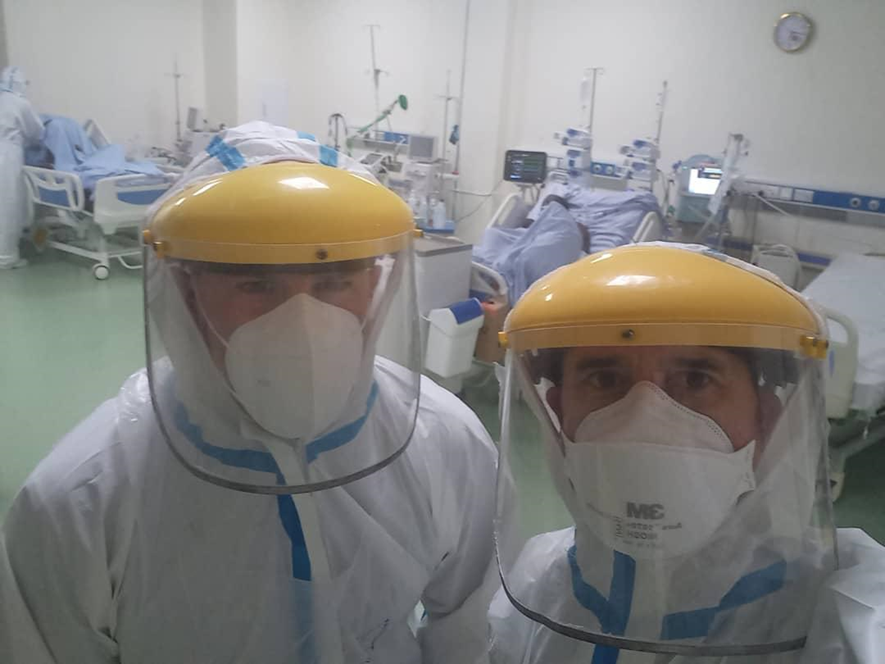
Critical care can be delivered safely for the highly contagious, severe Marburg virus disease, even in challenging outbreak settings, newly published research shows.
Two landmark papers, published in The Lancet Infectious Diseases and The New England Journal of Medicine, describe the successful delivery of advanced care to patients with Marburg virus disease during last year’s outbreak in Rwanda – the third largest on record.
Marburg virus disease is a rare but devastating filovirus, with past outbreaks averaging at least a 50% fatality rate. Rwanda’s 2024 outbreak saw 66 confirmed cases—mostly healthcare workers—and 15 deaths, yet none after the Marburg Treatment Unit was fully operational.
Professor Tom Fletcher from Liverpool School of Tropical Medicine was part of a World Health Organisation (WHO) clinical team deployment to Rwanda for the outbreak. With Dr Billy Fischer from UNC Chapel Hill and Dr Frederique Bausch from HUG Geneva, he worked alongside Rwandan doctors and nurses, whose dedication, professionalism and courage were central to the response.
Supported by a strong and coordinated Ministry of Health, the team delivered intensive care treatment, including mechanical ventilation, blood transfusions and advanced imaging and management. This led to critically ill patients recovering, significantly reduced mortality and no onward hospital transmission.
Some patients also received experimental antivirals and antibodies, and more than 1700 health workers and high-risk contacts were given a Marburg vaccine under emergency use.
These publications mark a major milestone in filovirus outbreak response, demonstrating that with a trained workforce, resilient health system, strict infection prevention and control practices and commitment to best care, high-level critical care can be safely delivered even in challenging outbreak settings.
The Marburg virus is transmitted to people from fruit bats and spreads through human-to-human transmission.
Ten years on from the West African Ebola epidemic where LSTM clinicians Professor Fletcher and Dr Shevin Jacob played a key role, this represents another paradigm shift in the clinical management of filovirus diseases.
Professor Fletcher, Professor of Emerging and High Consequence Infectious Diseases at LSTM, said: “Filovirus outbreaks still pose a major risk to global health security and frontline health workers. The Marburg outbreak in Rwanda demonstrated what resilience looks like — now we need the same urgency in advancing diagnostics and therapeutics.”
Dr Eric Seruyange, Case Management Pillar Lead, Rwanda, said: “It was a tough start, but unwavering commitment to quality care and strong government support turned the tide — and the outcomes that followed were exceptional.”